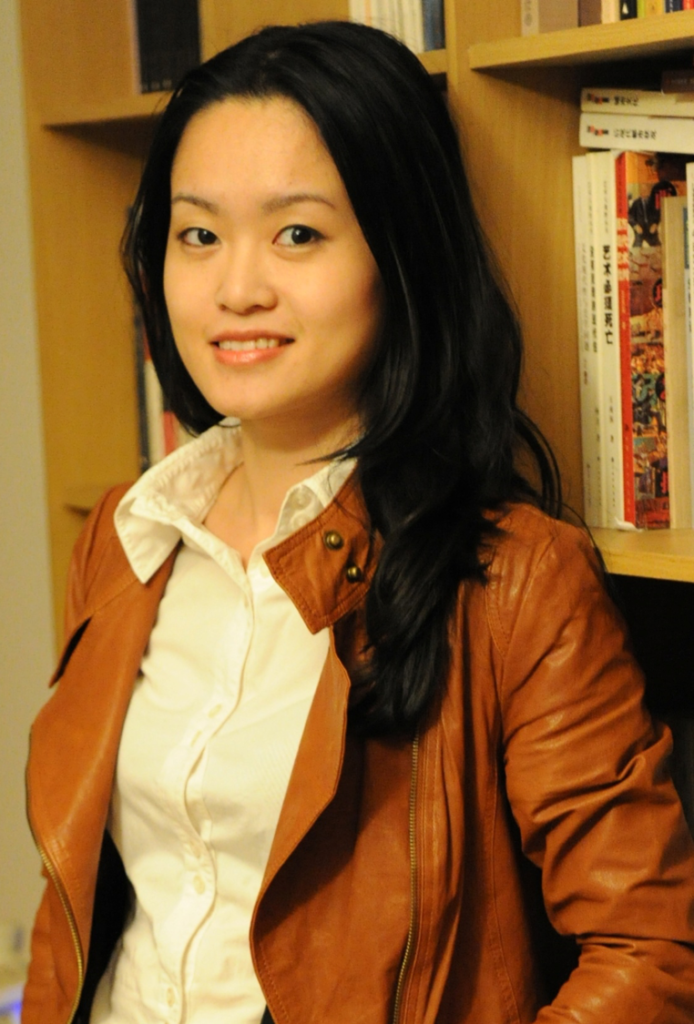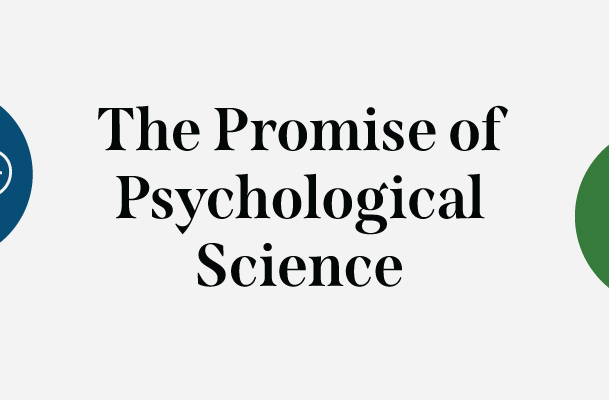The sheer speed of technological change necessitates an entrepreneurial spirit for success in much of the modern workplace—and certainly in much psychological research as well. These two realms intersect uniquely in a highlight of the upcoming 2022 APS Annual Convention: the Psychological Science and Entrepreneurship Poster Award. Exploring the benefits of an experimental mindset and solutions to reduce job turnover, respectively, Lining Sun of the National University of Singapore and Heather Han of Northern Kentucky University will each receive a $1,500 award for their posters, along with free registration to the convention in Chicago.
Supported by the Ewing Marion Kauffman Foundation, the Psychological Science and Entrepreneurship Poster Award is intended to stimulate research in entrepreneurship, defined as the capacity and willingness to develop, organize, and manage a business venture, along with its risks, in the pursuit of opportunity and innovation. The award is open to APS members who are either current undergraduate or graduate students or early-career scholars (having received their PhD in 2014 or more recently). The judges, APS Fellow Berrin Erdogan (Portland State University) and Regan Stevenson (Indiana University Kelly School of Business), selected one early-career winner and one student winner based on two award criteria:
- Relevance to the broad study of psychological science and entrepreneurship
- Scholarly contribution to existing knowledge, application, or practice
APS asked Sun and Han three simple questions about their work. Their responses, lightly edited for publication, follow.
APS Convention 2022
Sun’s and Han’s posters, along with hundreds of other posters covering entrepreneurship research as well as many other areas of study, will be presented and discussed at the upcoming APS event. To see the posters and meet with the researchers, register online by May 6.
Early-Career Winner
Lining Sun, National University of Singapore
Treat Life as an Experiment: An Experimental Mindset Predicts the Navigation of an Uncertain Job Market
An experimental mindset is an orientation toward approaching challenging or unfamiliar situations through iterative experimenting. This novel mindset predicts adaptive reactions to an uncertain job market, including the willingness to embrace uncertain work tasks and positive feelings toward and willingness to start over in a brand-new field when facing retrenchment.

What drew you to this entrepreneurship research?
My line of research focuses on how to help people thrive in an uncertain world. With modern technology constantly evolving, traditional jobs are disappearing while new ones are emerging. To thrive in such a world, everyone will need to become an entrepreneur—meaning they will have to pave their own professional journeys instead of adhering to existing yet likely disappearing career paths. I wondered: What can help people achieve this?
Leveraging my previous experience as an entrepreneur, my team and I proposed that an experimental mindset—a mindset that orients people toward approaching unfamiliar challenges through iterative experimenting—may instill an entrepreneurial spirit in people. This is because entrepreneurs are a group that embodies this mindset: They are constantly exploring solutions to brand-new situations. Hence, we predicted that an experimental mindset may benefit people by facilitating their navigation of an uncertain world.
What did the research reveal that you didn’t already know?
The experimental mindset is theoretically novel. Hence, while we had some predictions, we did not know anything for sure before our studies. So far, we have devised a scale to measure this mindset and found that it is distinct from existing mindsets. Our studies showed that an experimental mindset predicts a slew of adaptive reactions to an uncertain job market, including the willingness to take on uncertain tasks at work, self-perceptions of internal and external marketability, more positive and less negative emotional reactions to a brand-new job, the propensity to actively search for job skills valued by the market, and the willingness to learn new skills and start over in a brand-new field when facing potential career disruptions. We also have preliminary evidence that this mindset predicts self-regulated learning, positive attitudes toward failures, and resilience.
What are your plans to continue your research in entrepreneurship?
There are many things I want to know about how we can help people become entrepreneurs of their own lives and thrive in an uncertain world. The next step of the current project is to explore a possible causal relationship between an experimental mindset and adaptive reactions to adversity and career uncertainty. Importantly, I also consider it critical to instill an experimental mindset and entrepreneurship in children and adolescents. This group is likely to face an increasingly turbulent future. To address this, in a related line of work, I investigate what educators and parents can do to help young students be better at embracing and managing uncertainty.
Student Winner
Heather Han, Northern Kentucky University
Craving Work? Development and Preliminary Validation of the Work Passion Scale

This research integrates theoretical distinctions in definitions of work passion to describe initial efforts to develop and validate a generalizable, multidimensional measure. To evaluate construct validity, Han examines work passion’s internal structure and reports its factor relations with existing measures of positive affect, grit, conscientiousness, work effort, work engagement, and burnout.
What drew you to this entrepreneurship research?
Ever since taking a course in workplace motivation, I have been interested in the topics of turnover and the business side of psychological science. For my capstone project in my industrial-organizational psychology program, my team decided to work on a project that can potentially predict turnover and use the information to find solutions to lower turnover for specific groups of people. We found ties between workplace passion, motivation, and turnover, which can ultimately help support entrepreneurship research.
What did the research reveal that you didn’t already know?
The results of this research revealed that workplace passion comprises two factors: enthusiasm and intensity. The findings also show that there are positive relations of passion with positive affect, work engagement, work effort, conscientiousness, and grit and a negative relation with burnout. From this, entrepreneurs can build models or programs to predict the engagement and effort of an organization’s members to develop an action plan accordingly.
What are your plans to continue your research in entrepreneurship?
I plan to continue studying turnover and motivation, as my thesis project topic is on turnover. I am also studying organizational change and development, where I am learning to closely examine the factors that play a role in an organization’s development and how to develop solutions for any issues that arise during organizational change and development, which I believe are closely related to entrepreneurship research.
To see these and hundreds of other posters and meet with many of the researchers, register for the 2022 APS Annual Convention by May 6.
Read about previous year’s entrepreneurship winners >
-

Back Page: 2021 APS Entrepreneurship Poster Awards
Nikki Blacksmith received the award for her work on entrepreneurial ecosystems, while Dohyung Cha was recognized for his work on the dot-com bubble.
-

Award-Winning Ideas from the APS Virtual Poster Showcase
Each year, APS acknowledges outstanding submissions to the student poster showcase.
-

The Crossroads of Psychology and Entrepreneurship
Nikki Blacksmith and Mo McCusker, cofounders of Blackhawke Behavior Science and corecipients of a 2021 APS Psychological Science and Entrepreneurship Poster Award, discuss their research on the crossroads of business acumen and psychology.
